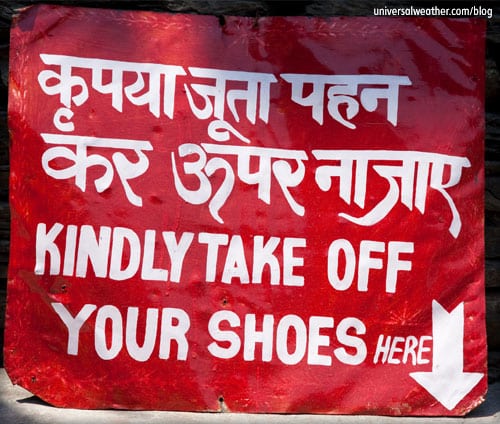Navigating Local Culture in India: 6 Tips for Your First Business Aviation Trip


This aviation blog post is part of a series on operating to India and continues from our last post “7 Things to Pay Attention to When Arranging Auxiliary Services in India.”
India is a country with an ancient and dynamic history and a culture spanning back to the beginning of human civilization. With a population of over 1 billion and one of the fastest-growing economies in the world, India has expanded business opportunities and is a more-frequent destination for business-aviation operators. In some respects, infrastructure, such as availability of international-standard hotel accommodations at more remote locations, is still limited. After leaving the airport, you will encounter non-stop traffic and crowding throughout the country.
1. Book your hotel accommodations well in advance
All major cities in India, including Mumbai (VABB), Delhi (VIDP), and Bangalore (VOBG and VOBL) have a variety of excellent hotels. However, they may be sold out, often during busy periods, and can be very expensive. The tariffs at these hotels may also vary, with high and low seasons. At certain times of the year, crew hotel rates may be in the range of $350 per night or higher. Western-style five- and four-star hotels will be difficult to find at remote destinations in India. With advance notice, however, your 3rd-party provider will be able to organize adequate accommodations almost anywhere on the subcontinent. Security is of high importance at major hotels in India, where you’ll often find armed guards deployed outside the hotel.
2. Familiarize yourself with your destinations in India
Security and cultural awareness are two important pre-trip considerations. While India is a safer environment than many other countries in the region, it’s always best to dress appropriately and to try to fit in with the local culture when off-airport. Traffic congestion can be extreme in major Indian cities, so it’s wise to alert passengers to expect possible delays on returning to the aircraft.
3. Check requirements for pre-trip vaccinations
As with much of Asia, we recommend hepatitis A and B vaccines before travel. If you’re traveling to more tropical regions in the south of India, talk with your 3rd-party provider regarding additional suggested vaccinations. Another source of information for requirements and suggestions is the United States Centers for Disease Control.
4. Be alert to sanitation considerations
While water supply at major hotels and in major cities should be fine, it’s best to avoid tap water and consume bottled water, especially in remote locations. Food quality at major international-standard hotels will not be an issue. Exercise caution when dining at more local establishments.
5. Be sensitive to local culture and traditions
Religion is central to Indian culture, and its practice can be seen in virtually every aspect of life in India. Cultural sensitivity is important. To India’s millions of Hindus, the cow is a holy creature that cannot be harmed. It’s best to avoid requests for beef in catering and hotel-restaurant orders. Throughout India, the locals are, by nature, very friendly and will do what they can to help you.
6. Be aware of national and public holidays
India, a culturally and religiously diverse society, celebrates many holidays and festivals. There are three national holidays celebrated in all 26 states: Republic Day on January 26, Independence Day on August 15, and Mahatma Gandhi’s birthday on October 2. In addition to these, the states and regions have a number of local festivals, depending on local religious and linguistic demographics. The Hindu festival of Diwali will take place on November 13, 2012. Muharram, observed by some sects of Islam, will be observed on November 24, 2012. And the Sikh Guru Nanak Jayanti festival will be on November 28, 2012. Business activity slows down over these periods. It is always best to check with your ground handler or 3rd-party provider to find out what holiday is taking place and if it will affect your operation. Below is a list of all the holidays taking place in 2012:
These days, more and more business-aviation operators appear to be flying to India. They report that the operating experience is straightforward, hotel and local services and in-flight catering considerations are generally a non-issue, and ground handling support has been more than adequate. You will enjoy your trip to India – whether it’s your first or your 20th – as long as you’ve coordinated carefully with support providers and local ground handlers.
Questions?
If you have any questions about this article, contact Christine Vamvakas at christinevamvakas@univ-wea.com.




